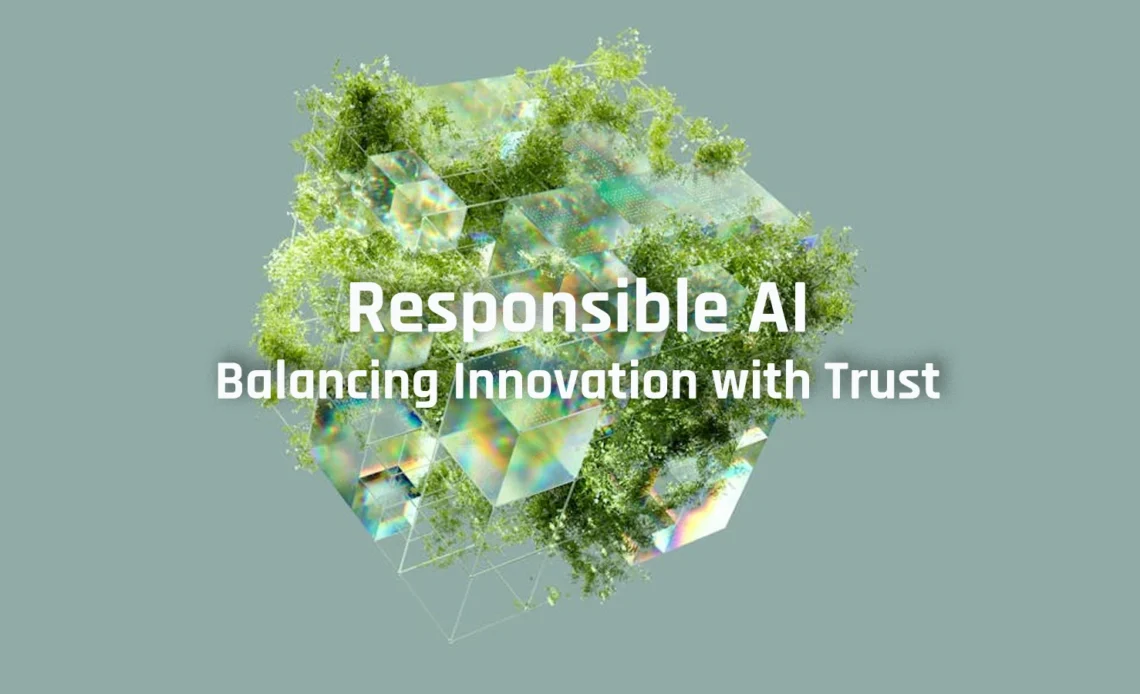Artificial Intelligence has become one of the most powerful forces shaping business, society, and daily life. It is enabling breakthroughs in healthcare, driving efficiency in logistics, transforming customer experiences, and reshaping how leaders make decisions. Yet, alongside this transformative power comes a responsibility that is just as great.
AI is not just another technology. It is a system that learns, adapts, and influences human behavior. The choices leaders make about how AI is designed, deployed, and governed will determine whether it is trusted or resisted, whether it creates shared prosperity or deepens inequities.
That is why responsible AI is no longer a side conversation for regulators or ethicists. It is a central leadership priority.
Why Responsible AI Matters
Innovation without trust is fragile. Customers will not adopt solutions they perceive as unsafe or biased. Partners will hesitate to align with ecosystems that fail to protect data or respect regulations. Employees will resist tools that feel opaque or threatening.
Responsible AI matters for three reasons:
- Trust as a competitive advantage: In crowded markets, companies that demonstrate ethical AI practices win customer confidence. Trust is not just a moral principle. It is a growth driver.
- Sustainability of innovation: AI models built without safeguards can generate short-term gains but lead to long-term reputational damage. Responsible AI ensures that innovation is sustainable.
- Regulatory readiness: Governments across the world are moving quickly to regulate AI. Companies that embed responsibility from the start will adapt more easily to these frameworks.
The Risks of Irresponsible AI
AI systems that are not guided by responsibility can create significant risks. Models trained on biased data may perpetuate discrimination. Generative AI systems can “hallucinate” and present false information with confidence. Poorly designed governance can expose sensitive customer data or violate privacy laws.
These risks are not theoretical. They are happening today. Hiring systems that unintentionally favor certain demographics. Credit scoring models that disadvantage underserved groups. Recommendation systems that amplify misinformation. Each example erodes trust in the technology and undermines the reputation of the companies deploying it.
Leaders cannot afford to delegate these issues to technical teams alone. Responsibility must sit at the top of the leadership agenda.
Principles of Responsible AI
Building responsible AI is about embedding values into design and deployment. Several principles stand out:
1. Transparency
Customers and employees need to understand how AI systems make decisions. Black-box models erode trust. Providing clear explanations, or at least interpretable outputs, is essential for adoption.
2. Fairness
AI must be trained on diverse and representative datasets. Leaders must actively test for and mitigate bias. Fairness is not accidental. It is designed and monitored.
3. Accountability
AI cannot be allowed to operate without human oversight. There must be clear accountability for decisions, whether in credit approvals, healthcare recommendations, or hiring practices.
4. Privacy and security
Data is the lifeblood of AI. Protecting it is non-negotiable. Strong governance, encryption, and compliance frameworks are required to safeguard trust.
5. Social impact
Leaders must ask how AI affects not just profitability but also employment, skills development, and societal well-being. Responsible AI aligns corporate growth with positive social outcomes.
Balancing Innovation with Governance
One of the challenges leaders face is balancing innovation with governance. Too much caution can stifle creativity and slow down progress. Too little governance can accelerate risks and erode trust. The right balance lies in designing systems where innovation and responsibility reinforce each other.
For example, companies can adopt ethics-by-design approaches, embedding checks and balances into AI workflows from the start. They can build diverse teams to test assumptions, invest in tools that monitor bias, and create escalation processes when issues arise. Innovation then happens within a framework of trust, not outside it.
The Role of Generative AI
Generative AI raises both incredible opportunities and urgent responsibilities. On one hand, it enables creativity at scale: producing content, designing solutions, and augmenting decision-making. On the other hand, it can spread misinformation, infringe intellectual property, and generate biased outputs.
The leaders who will thrive are those who embrace Generative AI boldly, while also setting clear boundaries. This means watermarking AI-generated content, disclosing when AI is used, and ensuring that human review is always part of critical processes. It also means educating teams and customers on both the benefits and the risks of this new technology.
Responsible AI as a Leadership Imperative
Responsible AI cannot be reduced to compliance checklists or ethical codes posted on websites. It must be lived by leadership. The tone is set from the top. When executives communicate clearly about responsible practices, when they invest in governance frameworks, and when they lead by example in using AI ethically, the culture shifts.
This is also where trust extends beyond customers. Employees who see their organization prioritizing responsibility are more willing to adopt AI tools. Partners who see transparency are more confident in collaboration. Regulators who see accountability are more willing to support innovation.
Final Reflection
AI is not simply about technology. It is about leadership. Responsible AI is the bridge between innovation and trust. Without it, adoption falters and risks grow. With it, AI becomes a driver of sustainable growth, deeper trust, and societal progress.
- Transparency builds confidence.
- Fairness ensures inclusion.
- Accountability keeps humans in control.
- Privacy protects trust at scale.
- Social responsibility aligns growth with purpose.
For executives, the question is no longer whether to prioritize responsible AI. The question is how quickly you can embed it into your organization’s DNA.
The leaders who succeed will not only innovate faster, they will be trusted more deeply. And in the age of AI, trust is the ultimate competitive advantage.


